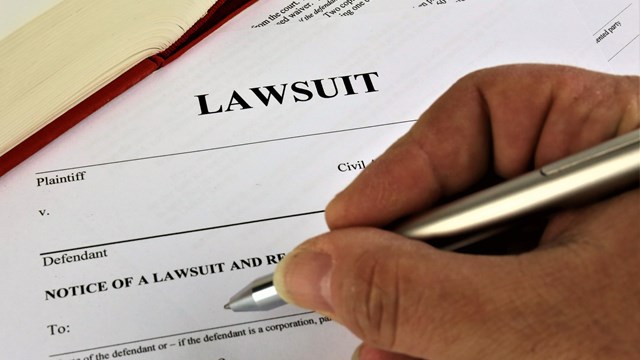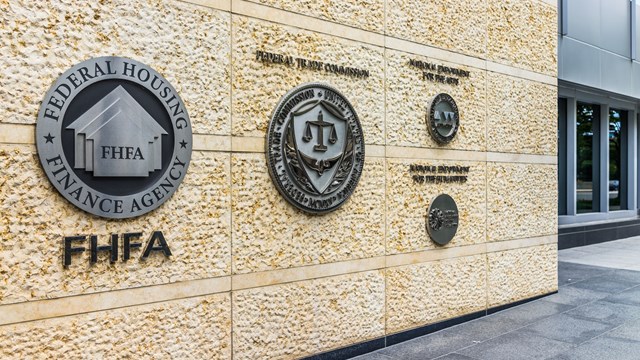Few things are as frustrating and irksome as paying a contractor to execute a project in either a private home or a condo association's common areas and finding out after the dust has settled that the work you paid for is substandard or outright defective. Condominium boards and homeowner associations have the right to sue a developer for defective construction. But the situation is never as cut-and-dry as you might think; New Jersey has laws that can both help and hinder a condo owner whose building may have been victimized by negligent construction contractors.
Define "Defect"
New Jersey's Division of Consumer Affairs defines a "major structural defect" as "any actual damage to the load bearing portion of the home, including consequential damages, damage due to subsidence, (which means, "sinking," ed.) expansion, or lateral movement of the soil—excluding movement caused by flood or earthquake—that affects its load-bearing function and that vitally affects or is imminently likely to vitally affect use of the home for residential purposes."
While leaky roofs and poor foundations immediately spring to mind, there are defects one may not suspect. According to Samuel McNulty, a partner at Hueston McNulty Mueller & DeGonge P.C., in Florham Park, there was a lot of substandard insulation that was installed recently in buildings in Hoboken. Hot and cold areas were rampant, and there were even sound problems. "You'd have a unit owner who could hear a neighbor down the hallway drop a knife and fork on the kitchen floor," says McNulty. "Those are big problems, and those are problems that go beyond just the transition process or that initial defect and pertain to the real livability of the building."
The NHWA
The New Home Warranty and Builders' Registration Act (NHWA) is a New Jersey-specific program enacted in 1977 that requires a builder to register with the state of New Jersey before starting construction of any new home. It also requires the builder to register with the state before offering a warranty on any new home bought or sold in New Jersey. This is just one of the things that makes the NHWA so puzzling. "We constantly get inquiries from around the country about the warranty program," said Patrick O'Keefe, CEO of the New Jersey Builder's Association in Robbinsville. "When people look at it, they realize it is probably a far more sophisticated array of activities than would be [warranted] in most states, but it's worked fairly well in New Jersey."
According to Consumer Affairs, "Under the New Home Warranty Act…during the first year of a new home's warranty, warranty coverage extends to defective systems, workmanship, materials, plumbing, electrical and mechanical systems, appliances, fixtures, and equipment, and major structural defects. From the commencement date of the warranty up to two years from that date, the mechanical, electrical, and plumbing systems and major structural defects are covered. The builder is responsible for warranty coverage during the first two years. During the third through tenth years of coverage, only major structural defects are covered."
The NHWA defines construction standards for the first two years after a home is built. During that period, the warranty focuses on all aspects of the construction, and for the remaining eight years applies to all the major structural elements. In all cases, predefined standards are established as to what constitutes structural adequacy or inadequacy.
Of course, disputes can easily arise if the builder and the customer don't immediately agree that there's a construction defect that needs correction. The building owner has the option of electing dispute resolution in the context of the warranty, or going to court.
Around the time the NHWA was created, the state also adopted a statewide, uniform construction code to be administered by officials licensed from the state, not the locality. In any new development, a series of inspections must be carried out by these licensed officials to examine all the major components of the project. The first inspection is made when the foundation is put in. The next inspection may be made when the roof assembly is built, and so on.
According to O'Keefe, a uniform code and series of regular inspections by an external official is unique to building projects in New Jersey. "It's something we have here," says O'Keefe, "and not something you generally see in other states." O'Keefe adds that the presence of the uniform construction code and the NHWA make the situation workable for both builder and buyer.
Both O'Keefe and McNulty caution people not to confuse the NHWA with the New Jersey Consumer Fraud Act (NJCFA), which under the right circumstances, can be a very useful tool for a building owner who has been sold a defective building. If the developer is sued under the NJCFA, says McNulty, "It isn't as if the developer is just writing off a potential loss; if there is a violation found, the developer is going to have to pay enhanced damages, plus attorney's fees."
When Can You Claim?
If you suspect a construction defect in your building, it is vital to have it assessed and remediated immediately. There is a six-year statute of limitations when it comes to building claims. Litigation for a latent defect (in other words, a hidden defect, or one not discovered during a reasonable inspection) can be commenced after this six-year period—so if you find the problem two or three years after the initial statute of limitations is up, you may still be able to take action. If the construction took place over 10 years ago, however, an even stricter "statute of repose" comes into play and limits your ability to seek legal action. "Once the statute of repose kicks in, you can't sue for any reason," explains David Hutt, a partner at the Woodbridge-based law firm of Hutt & Shimanowitz, "even if you didn't know about [the defect]."
Evaluating for Defects
In addition to hiring the proper contractor, one of the best ways to ensure quality workmanship in your building is to do your own evaluation for construction defects. An experienced engineer can be hired to go in and do a building audit, which would include a review of the plan that is on file with the municipality. This is usually done during the transitional period when the building is going from developer control to board control.
The New Jersey Department of Community Affairs (DCA) as well as other agencies will have on file paperwork identifying the developer of a specific community, the sponsor, the general contractor, and any of the subcontractor's information. According to McNulty, an attorney evaluating a construction project will often go to the client's municipal courthouse in person and actually pull the property's folder to determine when building permits were given and what conditions there were, then go to the planning or zoning board secretary and ask for copies of the actual resolutions granting the approval of the site plan and/or any variances. An attorney also looks at the promotional materials that the developer used in selling the units, as well as the public offering statements.
From there, it's fairly easy to tell if the construction complied with the plans on file and with the actual resolutions, and if there was compliance with the applicable municipal or state building codes. Also, in the case of condos and co-ops, there would be a survey given to the unit owners/residents by the inspecting official to see if there are problems with the units.
Building Right
Building a building is a complicated matter, and its vital to hire a contractor or buy a building from a contractor that is competent, and well insured. "It's important to have the project planned appropriately," said McNulty. "You don't want to have someone wearing all the hats."
Michael K. Norris is a freelance writer living in Connecticut.







3 Comments
Leave a Comment